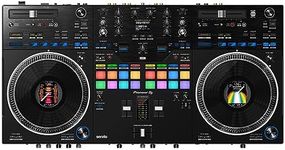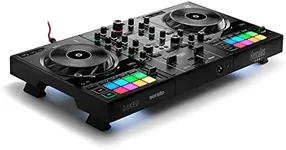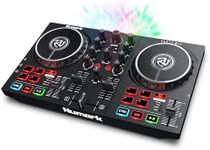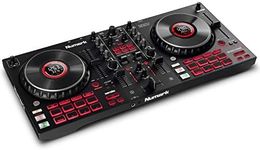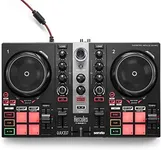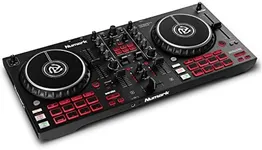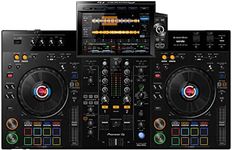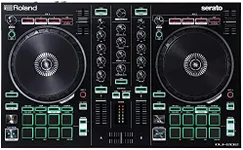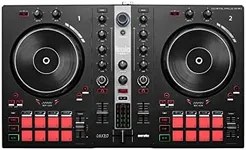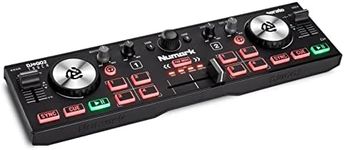Buying Guide for the Best Beginner Dj Decks
Choosing your first DJ deck can be exciting but also a bit overwhelming with all the features and options available. The key is to focus on what will help you learn and enjoy mixing music, rather than getting distracted by advanced features you might not need right away. Think about where and how you plan to use your decks—at home, at parties, or maybe even small gigs. Make sure the deck is compatible with your computer or music library, and that it feels comfortable to use. Start simple, and as your skills grow, you can always upgrade or add more equipment.Number of ChannelsThe number of channels on a DJ deck refers to how many audio sources you can mix at once. Beginner decks usually have two channels, which is perfect for learning the basics of mixing one track into another. More advanced decks might offer four or more channels, allowing for more complex mixes and layering. If you're just starting out, two channels are usually enough, but if you think you'll want to experiment with more sources or effects in the future, consider a deck with more channels.
Jog WheelsJog wheels are the round, spinning platters on a DJ deck that let you control the music, scratch, and nudge tracks into sync. The size and feel of jog wheels can vary—larger wheels often feel more like traditional vinyl turntables and can be easier for learning scratching techniques, while smaller wheels make the deck more compact and portable. If you want a more tactile, hands-on experience, look for decks with larger, responsive jog wheels. If portability is more important, smaller jog wheels might be a better fit.
Built-in Audio InterfaceA built-in audio interface means the DJ deck can connect directly to speakers or headphones without needing extra equipment. This is important for beginners because it simplifies setup and ensures you can hear your mixes clearly. Some decks require an external audio interface, which adds complexity. For most beginners, choosing a deck with a built-in audio interface makes things much easier and lets you start mixing right away.
Software CompatibilityDJ decks often work with specific DJ software, which you use to organize and play your music. Some decks come bundled with software, while others are compatible with a range of programs. It's important to check which software the deck supports and whether it matches your computer or device. If you're new to DJing, look for decks that include beginner-friendly software or are compatible with popular programs that have lots of tutorials and community support.
Performance Pads and EffectsPerformance pads are buttons that let you trigger samples, loops, or effects during your mix. Effects can add creativity and excitement to your sets. Beginner decks usually have a few basic pads and effects, while more advanced models offer more options. If you want to experiment with remixing and adding your own flair, look for decks with easy-to-use performance pads and a selection of effects. If you prefer to focus on basic mixing, you might not need as many of these features at first.
Portability and Build QualityPortability refers to how easy it is to carry and set up your DJ deck. Lighter, more compact decks are great if you plan to travel or move your setup often, while heavier, sturdier decks might be better for a permanent home setup. Build quality affects how long your deck will last and how it feels to use. If you want something you can take to friends' houses or parties, look for a lightweight, durable deck. If you'll mostly use it at home, a larger, more solid deck might be more comfortable.
